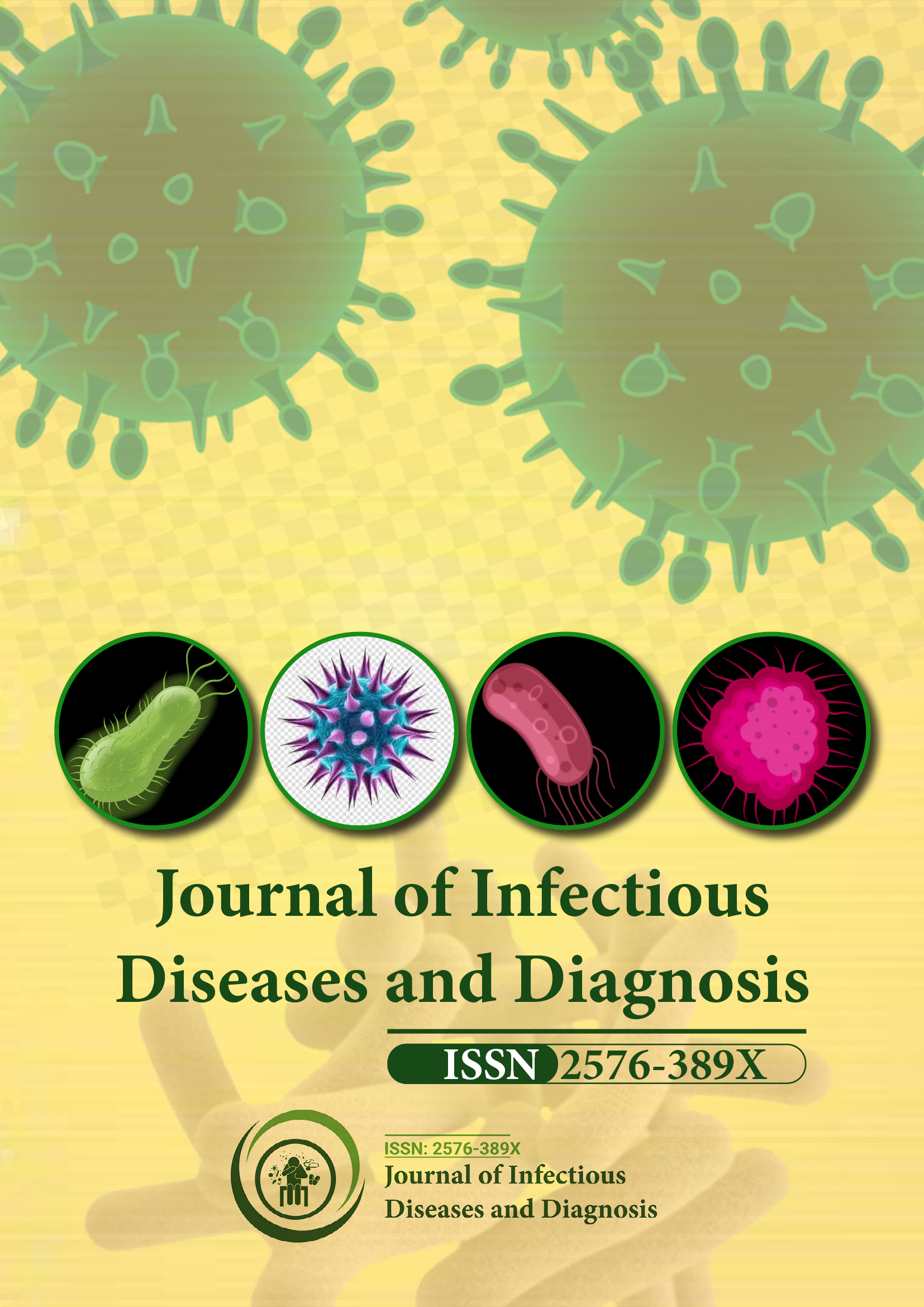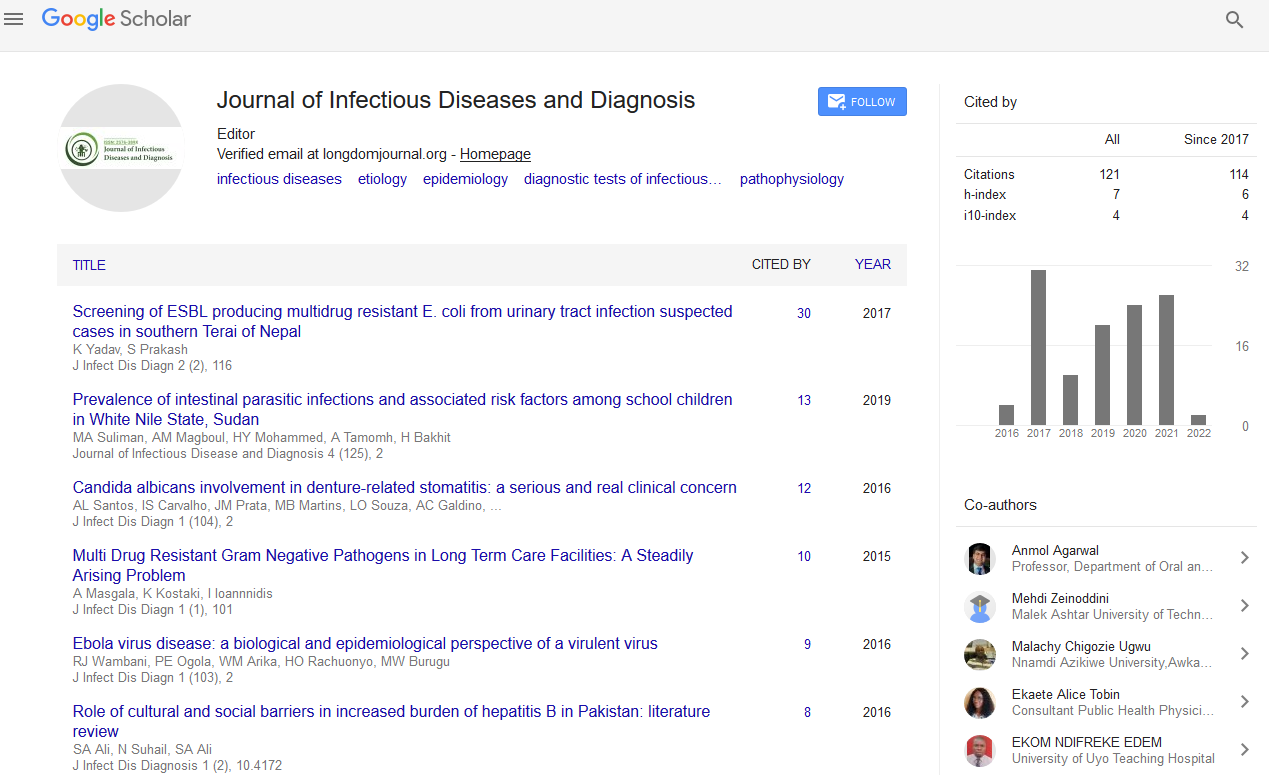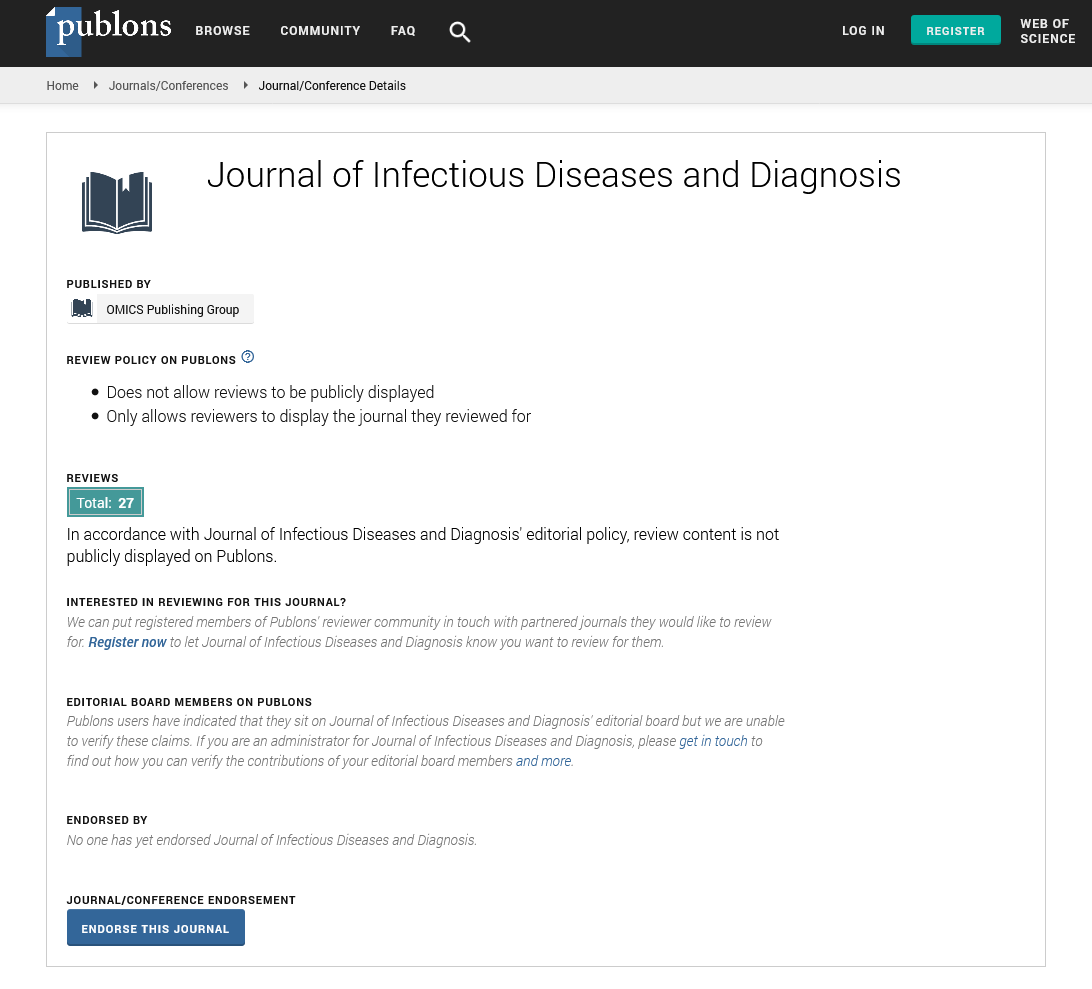Indexed In
- RefSeek
- Hamdard University
- EBSCO A-Z
- Publons
- Euro Pub
- Google Scholar
Useful Links
Share This Page
Journal Flyer

Open Access Journals
- Agri and Aquaculture
- Biochemistry
- Bioinformatics & Systems Biology
- Business & Management
- Chemistry
- Clinical Sciences
- Engineering
- Food & Nutrition
- General Science
- Genetics & Molecular Biology
- Immunology & Microbiology
- Medical Sciences
- Neuroscience & Psychology
- Nursing & Health Care
- Pharmaceutical Sciences
Decades most Contagious virus: CoVid-19
Protect yourself and others around you by knowing the facts and taking appropriate precautions. Most people who fall sick with COVID-19 will experience mild to moderate symptoms and recover without special treatment. The lungs are the organs most affected by COVID‑19 because the virus accesses host cells via the enzyme angiotensin-converting enzyme 2 which is most abundant in type II alveolar cells of the lungs. Submit novel papers related to Coronavirus.
COVID-19 causes a fever, cough, and trouble breathing. Some people have a sore throat. Symptoms are a bit like those people have with a cold or the flu. The virus can be more serious in some people, and may lead to illnesses like pneumonia.
These infectious diseases are large group of viruses that are common among animals. In rare cases, they are what scientists call zoonotic, meaning they can be transmitted from animals to humans. The virus can make people sick, usually with a mild to moderate upper respiratory tract illness, similar to a common cold.
Do not go to places like a GP surgery, pharmacy or hospital if you think you might have coronavirus. Stay at home.
- a high temperature – this means you feel hot to touch on your chest or back (you do not need to measure your temperature)
- a new, continuous cough – this means coughing a lot for more than an hour, or 3 or more coughing episodes in 24 hours (if you usually have a cough, it may be worse than usual)
Most people with COVID-19, including children, do not have serious problems. They usually get better with rest and fluids. But it is important to keep kids with COVID-19 away from others who may have a harder time with the virus.
People who are very ill get care in a hospital with breathing help, IV fluids, and other treatments.
There have been extraordinary steps in the management of infectious diseases and epidemics, including the applications of new technologies in real-time diagnosis, new drug development and artificial intelligence for monitoring. However, it is critical that these advancements are associated more into existing healthcare practices and that the continuous momentum to improve the responsiveness and sustainability of the health systems is sustained.
If you feel stressed about coronavirus, you're not alone. Coronavirus (COVID-19) has had ripple effects into almost every aspect of our lives. With schools and workplaces closed There are currently no vaccines available to protect you against human coronavirus infection, transmission is reduced through:
• Try to avoid frequent touching of eyes, nose or mouth with unwashed/ dirty hands
• Washing your hands often with soap and water
• Side step close contact with people who are sick. If you are mildly sick, keep yourself hydrated, stay at home and rest.
Chemists are helping to keep the lights on – literally. They are giving their efforts to come up with a proper vaccines and treatment.
Corona virus has spread in around the world very rapidly and has infected thousands of people across the globe. The virus is very dangerous and deadly due to its high transmission capability.
Thus, we hope these special issue release will help to advance the treatment for this deadly infectious disease and will develop more clinical analysis, examination and will drive the researches to the cure of coronavirus.
Guest Edited by:
Dr. Osamah A. Barasheed
Department of Public Health
King Abdullah Medical City, Makkah
Saudi Arabia


